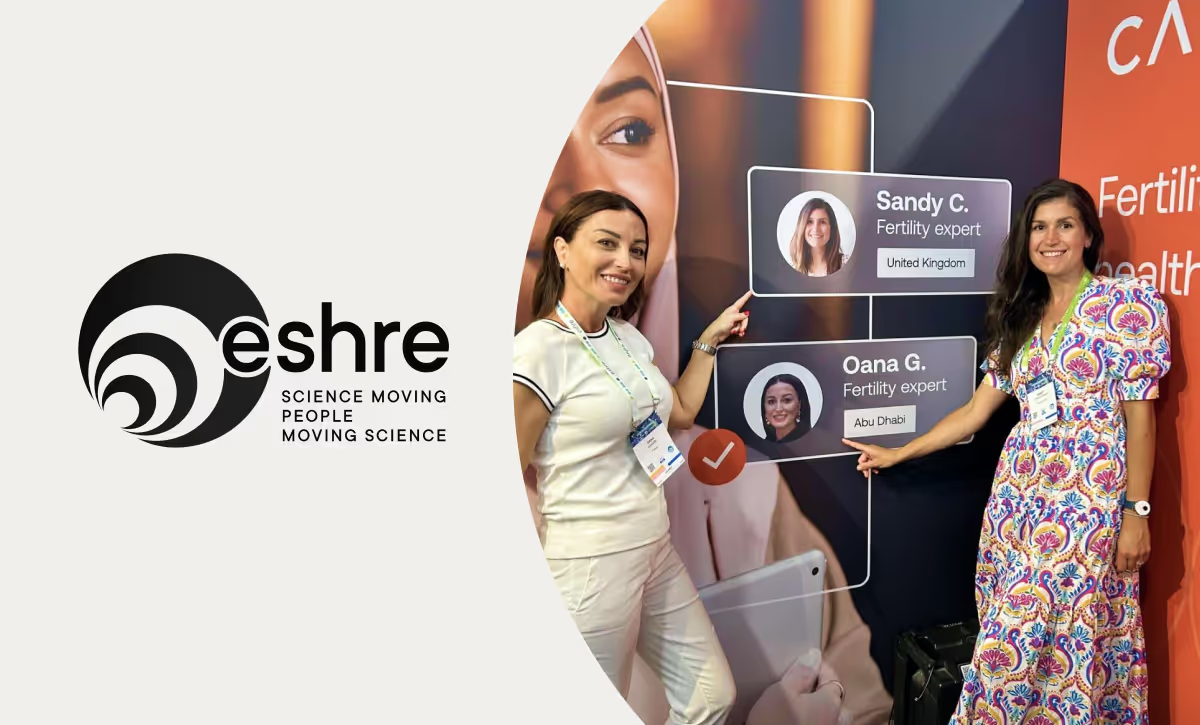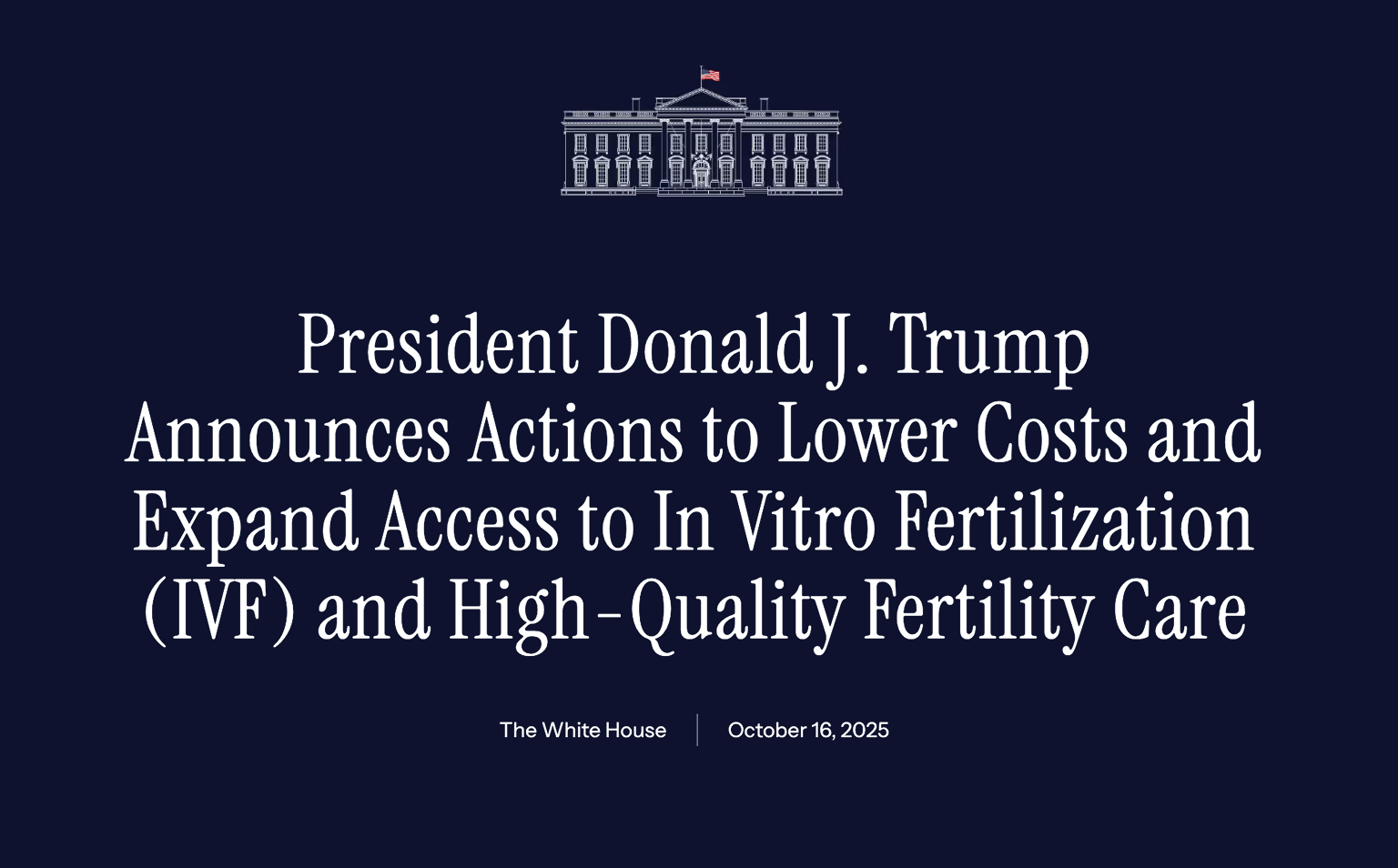The European Society of Reproductive Medicine and Embryology (ESHRE) annual conference draws providers and industry representatives, scientists, and fertility patients not only from within the European fertility, lifelong hormone health, early pregnancy, and family-building landscape but also from countries within the Middle Eastern, African, and Asian regions, where fertility and reproductive health benefits through employers, health plans, and plan supporters are not yet fully recognized or socioeconomically integrated.
ESHRE 2025 announced nearly 14,000 attendees from 141 countries around the globe. The venue for the clinical and scientific conference component was huge with packed audiences, and the exhibit hall for vendors was massive. In addition to our scheduled meetings with our existing and potential partners, there was a continuous stream of ESHRE participants curious about Carrot’s offerings.
Importantly, the value of Carrot’s offering was recognized, and reaffirmed that understanding and awareness of fertility and reproductive lifecourse benefits through the support, guidance and education that an entity like Carrot can provide to employees and policy holders, is continuing to grow within the EMEA health landscape.
New insights on fertility and hormonal health
ESHRE 2025 presented numerous opportunities to evaluate new technologies, which are transforming fertility care and improving decision-making processes. By integrating these technologies into Carrot’s clinical framework, we can optimize our benefits and reduce costs for our members while improving care consistency. Some of the trends we saw during the conferences were:
1. Advancements in artificial intelligence and automation
Artificial Intelligence (AI) solutions not only speed up processes and improve efficiencies when applied to components of fertility interventions for those struggling with infertility, but also decrease costs for our members while personalizing and optimizing their fertility treatment interventions.
Clinical scientists and engineers working within fertility clinics from different parts of the world presented on current leveraging of AI to improve ovarian stimulation protocols, to improve processes in the selection of the highest quality ovary, sperm and embryo, and borrowing from AI solutions developed in other industries, both medical and non-medical.
2. Obesity’s impact on fertility and pregnancy outcomes
Obesity remains one of the biggest challenges for reproductive health, and the associated risks when attempting pregnancy, during pregnancy, including increased fetal abnormalities and chronic disease risks. There were a number of important teachable moments some of which involve motivating lifestyle changes such as improved nutrition and exercise throughout their attempts and during pregnancy journeys, as well as the role of GLP-1 receptor agonists in weight management before attempting pregnancy and assurance that GLP-1 RAs have not shown significant negative impacts if a female becomes pregnant prior to stopping the medication.
3. Early blood test predicts preeclampsia risk with high accuracy
Predicting preeclampsia brings significant value for improving both maternal and fetal outcomes. Early prediction allows for targeted monitoring, timely intervention, and potentially reduces the incidence of severe complications associated with this pregnancy-specific condition. A simple blood test taken in the first trimester of pregnancy can accurately predict the risk of preeclampsia months before symptoms appear.
Carrot will hope to see additional evidence presented through randomized control trials that will allow reimbursements for this simple test in future.
4. Reproductive life span and menopause
Carrot’s members can experience menopause at various times from premature menopause in their 20s, to early menopause in their 30s and a natural menopause (ANM) ranging from 40-60 years. New genetic studies were presented that will help females with identified complex genetic differences, to better understand and predict when they may most likely experience ANM. In future, such results can help our members to make better informed choices about fertility and family building, manage their life ambitions and also help them to better manage symptoms and health conditions associated with reproductive aging.
The importance of partnership in fertility and hormonal health care
As every year, ESHRE serves as a valuable platform to deepen relationships with key existing provider partners and as a launchpad for developing new provider partnerships. Our provider partnership ecosystem continues to play a growing role in ensuring our members across EMEA have timely and affordable access to the highest-quality care. This is becoming ever more important as we see it becoming increasingly difficult for members to navigate care in key countries, such as the UK, where the National Health Service (NHS) is cutting back its already limited coverage of fertility care in certain regions, or in a country like France, where wait times for egg preservation can run upwards of two years.
Strategic connections with leadership in challenging regions
A major achievement at ESHRE was having immediate access to our EMEA consultants, our global advisors and others who Carrot considers as very high-value contacts from within the traditionally complex or opaque fertility, family-building, hormone health markets where ART and reproductive health, parenting and donor legislation and where publicly available data can have limited or restricted availability. Connections with KOLs from these countries represent a unique gateway to critical insights, greatly enhancing our regional strategy and intelligence.
Carrot’s presence at ESHRE 2025 highlights our commitment to advancing reproductive care and expanding our impact globally. This event provided us with opportunities to strengthen existing partnerships, create new connections, and stay ahead of emerging trends in reproductive health and family building. As the fertility landscape continues to evolve, we remain dedicated to providing our members with the most comprehensive, useful, and personalized care. By deepening our understanding of local healthcare challenges, Carrot is well-positioned to drive meaningful change in the way fertility and reproductive health services are delivered worldwide.













